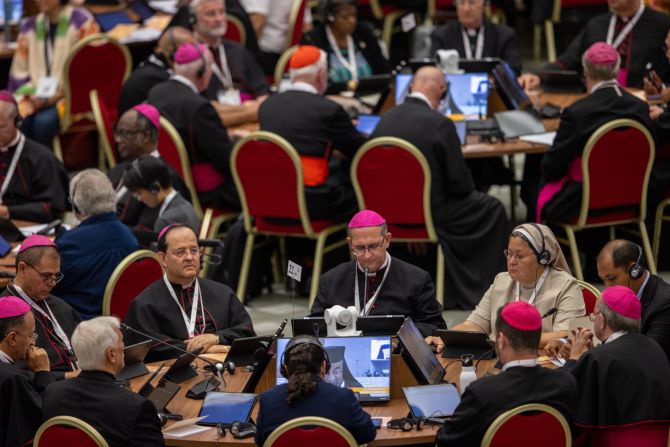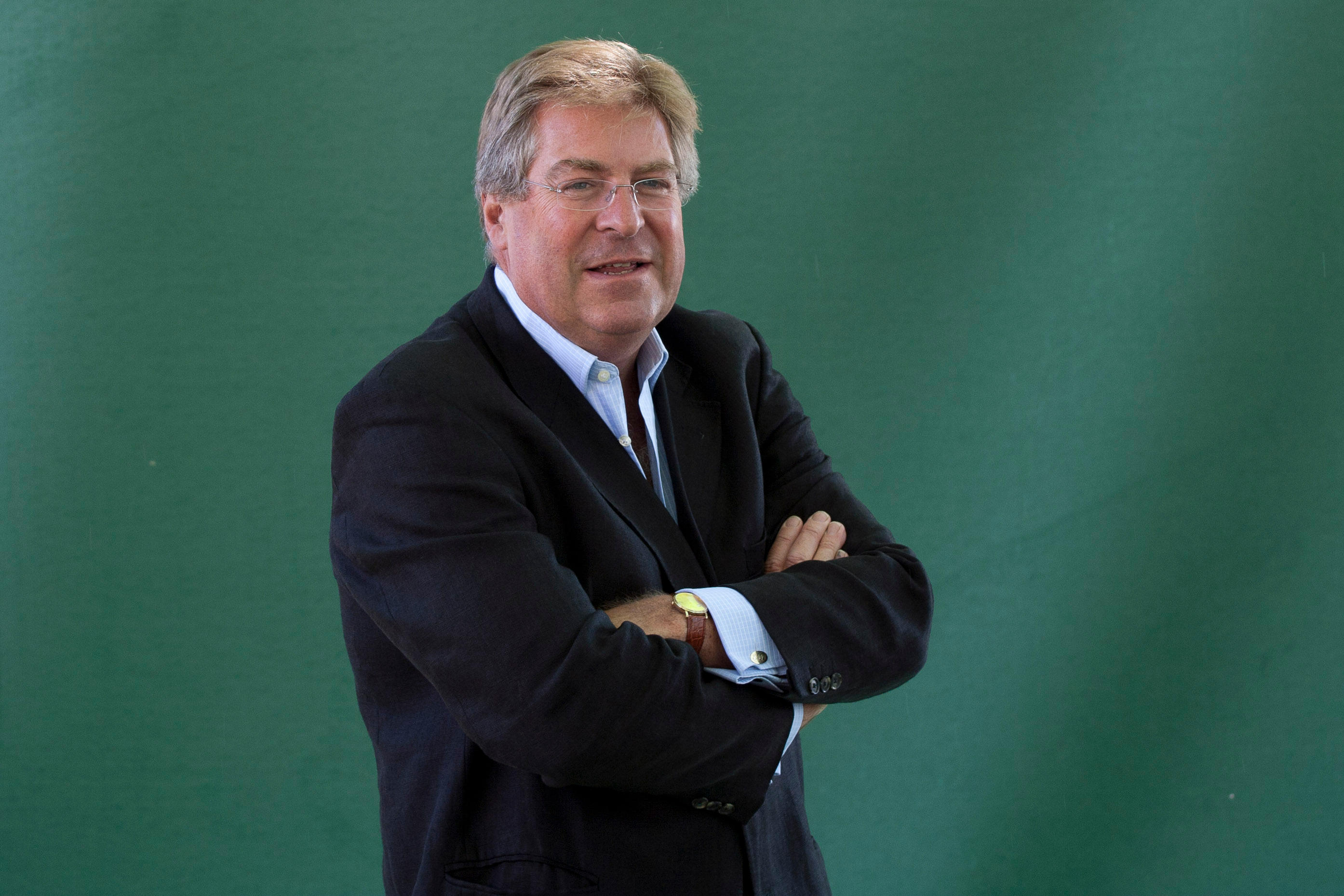In Fiducia Supplicans, the Church is not asking people to be “morally perfect” to bless them and the new papal document on blessing couples in irregular situations is the “beginning of something”, according to Mark Dowd, former Dominican friar and BBC journalist.
He told a Tablet webinar hosted by Ed Stourton, broadcaster and presenter of the BBC Radio 4’s Sunday programme, “I could complain that the bottle is half empty and that it is disappointing and discriminating, and it’s a terrible injustice.
“But we gay men and lesbians and bisexuals and other people that don't belong to the heteronormative paradigm have learned one thing, which is patience – we are part of an emerging tradition.”
Welcoming the document, Dowd, who married his partner in 2018 said, “I think, fidelity to this document and welcoming it is part of my witness and testimony to being a good Catholic, and to continue to make the case that our love is no better, and no worse, but equal in the eyes of God.”
He also highlighted that there are seven countries in the world in which a person can be put to death for a same-sex relationship and another 65 countries in which it is a crime.
“There's no way that gay men and lesbians in those countries are going to go to their bishops with a partner and ask for a blessing, in a culture and a society where they could lose their lives, or at least face 15-20 years in prison.”
He said this why he and others have been urging the Holy See to be more vocal in the campaign for decriminalisation, because it is unjust that someone can be put to death for loving another person.
Miriam Duignan, a trustee at Wijngaards Institute for Catholic Research said that there were both positives and negatives to Fiducia Supplicans which she described as “ultimately schizophrenic”.
“On the positive side, I think it is a validation that has long been missing. It constitutes a correction to what was said in 2021 when Pope Francis said, ‘You cannot bless sin’. However, the bad news is, the document itself and all of the arguments around it are still reinforcing an incorrect official Church teaching that is still causing shame and pain.”
The details of the document, she said, indicated that the blessing is “really tantamount to saying ‘best wishes’ to the individuals who make up the so-called irregular couple. According to current papal teaching the right path, essentially, is praying for the dissolution of that conjugal union. The priest will say, ‘bless you’ and wish you all the best, but is also implicitly suggesting that you should stop existing as a couple because you are considered irregular.”
The core problem with the document, according to Duignan, is that the Vatican is attempting to change the pastoral practice … “but they are not modifying the underlying, outdated and, frankly, theologically incorrect doctrine” that sex is only “morally licit within a marriage between a man and a woman and open to procreation. And that divorce is still absolutely forbidden.”
Julian Paparella, a Canadian doctoral student at the Pontifical John Paul II Institute for Marriage and Family in Rome, described Fiducia Supplicans as “a step in the right direction” though “quite a beleaguered step”.
The two fundamental things that it does right, he noted, were it is “starting to get the whole Church on the right wavelength in terms of what Vatican II said about God being in the life of every human person”. Gaudium et Spes had talked about how the Holy Spirit is in the life of every person of goodwill.
He said the document was bringing the Church's pastoral practice up to speed with this deep theological, anthropological conviction that the Church has already had for the last 60 years since Gaudium et Spes.
However, the way the document couches that step in the right direction is not “nearly solid enough” he criticised.
“It tries to construct itself on a kind of artificial distinction between pastoral blessings and liturgical blessings.” The difference between public blessings at a mass, for example, in the sacrament of marriage and private blessings, which might happen in a sacristy “is an unfortunate dichotomy”, Paparella observed.
“At the end of the document, it talks about the Church as a sacrament of God's love. And in this sense, it’s almost like saying, well, the Church can be a sacrament of God’s love pastorally, but not liturgically.”
According to Miriam Duignan, the Vatican does not want a liturgical rite for these “spontaneous” new blessings, and this adds to the shame for the couples involved.
However, Mark Dowd said the fact that the blessing isn’t “prescriptive” provided latitude and flexibility. “I think we just got to be tentative, and this can change.”
“It’s messy,” Julian Paparella acknowledged. But he suggested that Newman might prove enlightening in relation to the development of Christian doctrine.
One positive sign since it was first promulgated in December, he said, was that the Vatican appeared to have opened up to a more decentralised approach of case-by-case implementation and that no bishop or priest could say it was heretical. “At the same time, it’s not forced in a uniform way, as has been the case with other liturgical reforms.”
On the opposition to the document, Miriam Duignan underlined that while there has been a lot of talk about the African bishops conferences rejecting the document outright, “there has been a lot of opposition to it in pockets all over the Catholic world” and she suggested that people needed to keep the pressure on those bishops opposed to it and tell them they were not speaking in their name.
Asked about claims that it could cause schism, Mark Dowd highlighted that schisms were usually reserved for huge questions of doctrine, like the filioque clause and the rupture between Orthodox and Western Christianity in 1054.
“This subject, which affects relatively small numbers of people in percentage terms, why is it such a hot potato?” he challenged.
On the possible parallel between the failure of the catholic laity to accept Humanae Vitae, he said there has always been a link between Humana Vitae and homosexuality because both of them are about the expression of sexual practice outside the possibility procreation.
“The minute you allow the house of cards to tremble in one little part of the base, you have one of those pullovers that starts unravelling all its wool. You are into the whole question of the authority of the Church – that’s what's at stake here. I think this is why, if you look at social media and the hugely impolite, angry, downright rude and uncharitable exchanges on this subject, I think it’s a deeper nerve which is really about the sense of authority of the Church itself.”
For Julian Paparella, Fiducia Supplicans is opening up a possibility that was in effect already happening in many different ways in a lot of places.
“We can think even of 100 years ago, how many marriages between people of different Christian denominations would happen in sacristies, for example, instead of in the main church, because that was seen as being taboo and scandalous.”
“And now an Anglican marrying a Catholic just seems like a beautiful normal wedding. There's nothing to hide about that.”
“I do think that there is an element of embracing where society is moving, while at the same time doing so in a discerning way, in a way that doesn't change the fundamental doctrine, but does change our attitude, our posture, our way of welcoming people, accompanying people, blessing people.”
The opposition of some bishops in the US was not just a cultural difference but “something much deeper” such as ecclesiological or theological difference.
“This kind of abject rejection of Fiducia Supplicans is at its root a rejection of Francis, which is a rejection of Vatican II, and a clinging to the previous vision of the Church before Vatican II.”
Asked if the document is a pivotal moment for the Francis pontificate, Miriam Duignan of the Wijngaards Institute for Catholic Research observed that Pope Francis has opened up a lot of discussions, but the tangible changes have been few.
“The document Fiducia Supplicans is making it very clear, we are not changing the concept of marriage; it is still the primacy of heterosexual marriage that leads to children and the traditional family. But we will allow this thing on the side…”
“What [Francis] is doing is changing pastoral practice, but he isn't changing theology,” she said.
It was Julian Paparella’s opinion that Fiducia Supplicans “is not so much a question of revising canon laws, so much as a reconfiguring of the life of our Catholic communities”.
He said, “I think this makes it clear that everybody is welcome. Everybody, so to speak, is blessable.”
Meanwhile, hundreds of Catholic priests and scholars are backing a “filial appeal” to cardinals and bishops asking them not to apply Fiducia Supplicans in their dioceses and also calling on Pope Francis to withdraw it. The appeal says, “Never in the history of the Catholic Church has a document of the Roman Magisterium experienced such a strong rejection”.
It continues, “Indeed, despite its explicit reaffirmation of the traditional doctrine of the Church on Marriage, it turns out that the pastoral practice that the document allows is in direct opposition to it. So much so, that the document has been very favourably received by those few episcopates and prelates that for decades have been openly advocating a change in the doctrine on sexual morality. It is evident that the practical message that this new declaration transmits is much more in line with the program and ideas of those who want to change the doctrine, than with the doctrine itself that the document claims to keep intact.”
By contrast, they point out that the document has been “very favourably received by those few episcopates and prelates that for decades have been openly advocating a change in the doctrine on sexual morality.”
The signatories include Bishop Joseph Strickland, Professor Thomas Pink of King’s College, London and Dr Andrew Pinsent, research director of the Ian Ramsey Centre for Science and Religion at the Faculty of Theology and Religion at the University of Oxford.
For details of upcoming Tablet events, click here.



 Loading ...
Loading ...